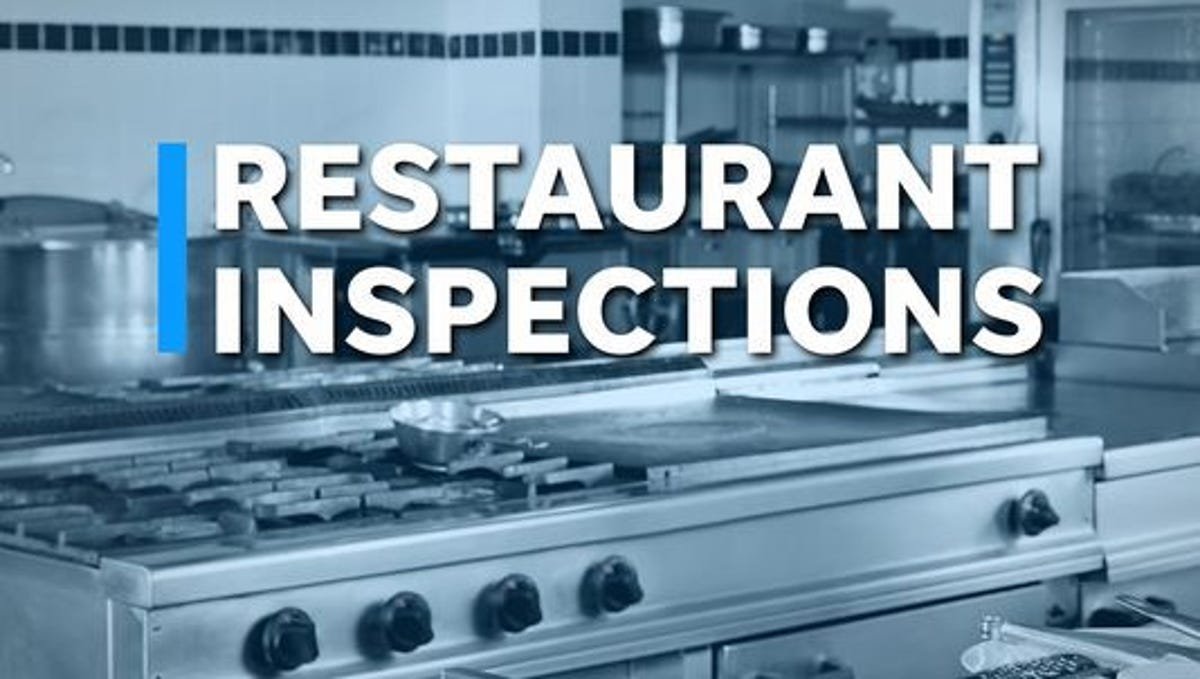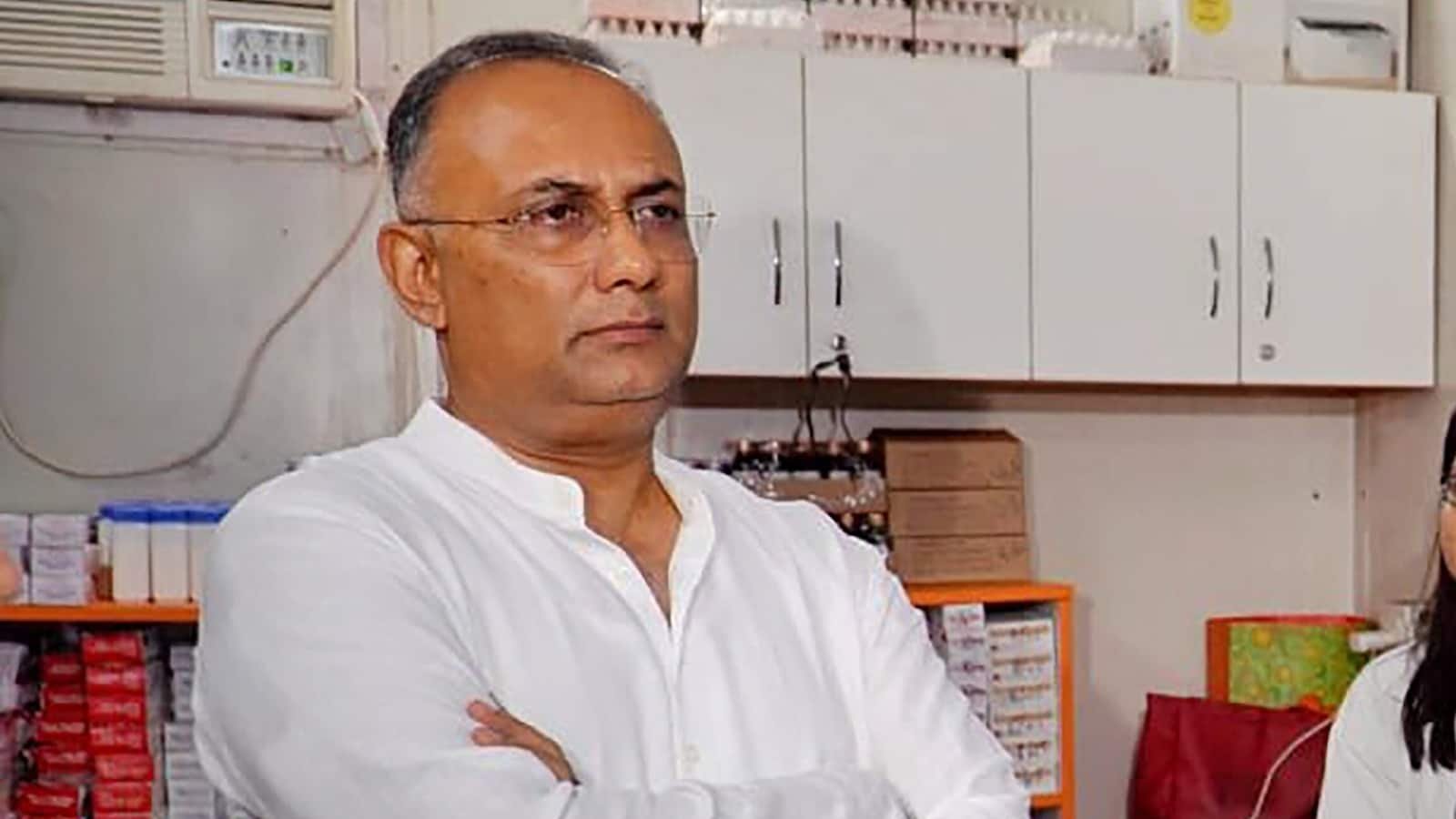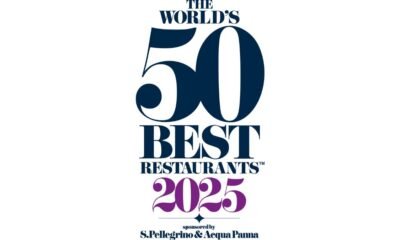Restaurants & Food
Indian Restaurants Set for a Rebound as Inflation Eases

The Indian restaurant industry began 2024 on uncertain footing, grappling with challenges from rising food inflation. After a short-lived boom of “revenge dining” following the pandemic, restaurants saw a significant dip in customer footfall. High food prices, particularly for essentials like vegetables, cereals, and pulses, combined with a cautionary approach to spending by consumers, led to reduced profitability across the sector. The first quarter of the year, typically a promising period for restaurants, became a difficult landscape for both fine dining and casual outlets.
Inflation had a particularly acute effect on the restaurant business. For example, food inflation surged to over 10% in June 2024, significantly raising input costs for restaurateurs. Items that form the backbone of Indian cuisine, such as tomatoes, onions, and grains, became more expensive, making it hard for restaurants to maintain profit margins without raising prices on their menus. However, given that customers were already reducing their discretionary spending, this further reduced traffic, creating a cycle of diminished returns.
Teja Chekuri, Founder of Full Stack Ventures, highlights the impact of this price surge, “The surge in food prices in the first part of the year did pose a significant challenge to the restaurant industry, as most of us grappled with the complexities of either absorbing the increased costs and letting it impact our margins or passing it on to customers and bracing for an adverse impact. These problems obviously would come to pass, as the strain was caused by significant natural calamities, geopolitics and socio-economic factors that led to supply chain disruptions.”
The competition from cheaper, unorganised players also exacerbated the issue. Many small-scale eateries and street food vendors, who operate at a lower cost, became more appealing to price-conscious consumers. Quick-service restaurants (QSRs) and organised dining chains faced stiff competition, particularly as they were hit harder by inflation due to higher operational costs.
Economic Optimism and the Promise of Recovery
Despite these hurdles, industry leaders are optimistic about a turnaround. Speciality Restaurants Ltd, which owns popular brands like Mainland China and Sweet Bengal, believes that the challenges are temporary. Anjan Chatterjee, CMD of Speciality Restaurants, noted that food inflation is a short-term phenomenon and expressed confidence in India’s economic fundamentals. As inflation begins to ease, he anticipates a resurgence in dining out.
There are reasons for this optimism. By July 2024, food inflation had fallen to 3.45%, a significant drop from June’s over 10% rate. This easing inflation, coupled with strong economic fundamentals such as improved employment rates and rising disposable incomes, provides the industry with a more stable environment. As wages rise and employment generation improves, consumers are likely to return to restaurants, further buoying the sector.
“However, with that behind us, we are extremely optimistic that the turnaround is in process and that’s primarily due to investor confidence in the Indian growth story, and the demonstrated resilience of India’s economy in the face of global uncertainties. India’s steady GDP growth, falling fiscal deficit, favourable policies for MSMEs and a burgeoning middle class, has been a marker of this optimistic view we hold,” Chekuri added.
Industry analysts point out that India’s robust economic growth could support a strong rebound. The IMF has projected India’s economy to grow by 6% in 2024, one of the highest rates among major global economies. This growth is likely to increase consumer spending, which will benefit sectors like dining and hospitality.
Key Trends Driving the Industry’s Revival
One of the main drivers behind the recovery is the growing demand for food delivery services. The pandemic fundamentally changed consumer behaviour, pushing more people to order food online. Even as restrictions eased, this trend continued, with the food delivery market growing by 52% since the pandemic began. This demand is expected to persist, growing by 10.3% annually between 2023 and 2030.
Restaurants are capitalising on this shift by expanding their delivery options and investing in cloud kitchens. These “ghost kitchens” focus exclusively on online orders, significantly reducing overhead costs like rent and front-of-house staff. By eliminating the need for physical dining spaces, restaurants can increase their profit margins while meeting the growing demand for convenient, at-home dining experiences. “The growth in food delivery services has been a lifeline for us and will continue to fuel recovery. Similarly, automation and cloud kitchens have helped reduce costs and improve operational efficiency,” said Nishit Rajvanshi the founder of Mumbai-based Chango Wings.
Technological innovations are also transforming the industry. From AI to robotics, restaurants are increasingly adopting advanced technologies to improve operational efficiencies. In cities like Mumbai, fine dining establishments are leading the way by incorporating automated systems that enhance customer service and streamline operations. This push toward innovation is helping restaurants reduce costs and improve profitability, even as they navigate inflationary pressures.
Moreover, digital marketing is becoming a cornerstone of restaurant strategies. With 88% of consumers trusting online reviews over personal recommendations and 75% using social media to decide on a restaurant, a strong online presence is now essential. Restaurants are leveraging social media platforms and digital advertising to engage customers, build loyalty, and drive footfall.
The Resilience of Fine Dining and Casual Dining
The fine dining segment, in particular, has shown resilience amid economic challenges. A report by the National Restaurant Association of India (NRAI) highlights that consumers are increasingly drawn to premium dining experiences. While inflation has raised food prices, it has also led to a shift in consumer preferences toward quality over quantity. More consumers are seeking out memorable dining experiences and are willing to spend more on premium ingredients, ambiance, and service.
This shift has encouraged fine dining restaurants to innovate with their menus, offering niche culinary experiences that cater to evolving consumer tastes. The concept of “farm-to-table” dining, which promotes locally sourced and sustainable ingredients, has gained popularity. By integrating seasonal produce and fresh ingredients, restaurants can not only mitigate the effects of inflation but also align with consumer preferences for healthy, sustainable dining options.
Future Outlook and Challenges Ahead
While the industry is poised for recovery, challenges remain. Inflationary pressures, particularly on labour and food costs, will likely persist, making it critical for restaurants to innovate continuously. The rise of food delivery, contactless payments, and technology-driven operations will shape the industry in the years to come, but staying profitable in a high-cost environment will require careful planning and execution.
Sharing optimistic perspective on the future, Chekuri commented, “With eventual easing conditions, and India’s demographic advantage and growth trajectory, we are bound to see an economic upturn in the restaurant industry, which if backed by policy support from the government, will grow from strength to strength.”
Restaurants will need to balance pricing strategies with consumer expectations, ensuring that they do not alienate their customer base by passing on too many costs. Additionally, the push for sustainability and local sourcing, while beneficial in the long term, could drive up costs in the short term.
However, the long-term prospects remain bright. With annual growth in the food services sector projected at 8.1% between 2024 and 2028, driven by urbanisation and technological advancements, the restaurant industry is expected to flourish once inflation stabilises. The combination of a growing middle class, increasing disposable incomes, and a shift toward quality dining experiences will fuel the industry’s recovery and growth in the coming years.
Restaurants & Food
Vero Beach area restaurant and food truck inspections July 28-Aug. 3

What Do Restaurant Inspectors Look For?
Each inspection report is a “snapshot” of conditions present at the restaurant at the time of the inspection.
Ginny Beagan, Wochit
You can use the database to search by county or by restaurant name.
Florida’s restaurant owners are not required to post restaurant inspection results where guests can see them. So every week, we provide that information for you.
For a complete list of local restaurant inspections, including violations not requiring warnings or administrative action, visit our Indian River County restaurant inspections site.
Here’s the breakdown for recent health inspections in Indian River County, Florida, for the week of July 28-Aug. 3, 2025. Please note that some more recent, follow-up inspections may not be included here.
Disclaimer: The Florida Department of Business & Professional Regulation describes an inspection report as a ‘snapshot’ of conditions present at the time of the inspection. On any given day, an establishment may have fewer or more violations than noted in their most recent inspection. An inspection conducted on any given day may not be representative of the overall, long-term conditions at the establishment.
For full restaurant inspection details, visit our Indian River County restaurant inspection site.
Which Indian River County restaurants had high priority violations?
5135 20th St., Unit 108, Vero Beach
Routine Inspection on July 31
Follow-Up Inspection Required: Violations require further review, but are not an immediate threat to the public.
11 total violations, with 4 high-priority violations
- High Priority – Employee began working with food, handling clean equipment or utensils, or touching unwrapped single-service items without first washing hands. Employee began working with wontons without washing hands. Educated manager **Corrective Action Taken** **Warning**
- High Priority – Live, small flying insects found 3 live flies in kitchen **Warning**
- High Priority – Raw animal food stored over/not properly separated from ready-to-eat food. -raw chicken over veggies in cook line cooler – boxes of raw chicken stored next to raw cabbage in tall cooler. Advised employee to separate **Corrective Action Taken** **Warning**
- High Priority – Time/temperature control for safety food cold held at greater than 41 degrees Fahrenheit. Raw chicken 61f. Cold holding. Tofu 51f cold holding. ; In reach in cooler. Door was not fully shut. Advised to rapid chill cooked noodles (73F); cut cabbage (89F) sitting out on counter. Employee states it was sitting out for 45 minutes. Employee moved to freezer to rapid chill **Corrective Action Taken** **Warning**
3450 Ocean Drive, Vero Beach
Complaint Inspection on July 29
Follow-Up Inspection Required: Violations require further review, but are not an immediate threat to the public.
7 total violations, with 3 high-priority violations
- High Priority – Time/temperature control for safety food cold held at greater than 41 degrees Fahrenheit. Small reach in-Rice 48f. Shrimp salad 48f. Cut tomatoes 49f. Hot dogs 48f all cold holding for 3 hours. Manager moved to rapid chill. Tall single door cooler- Tall stainless cooler- Cheese 47f cold holding. . ; shaved beef (51F – Cold Holding); salmon (44F – Cold Holding); burgers (44F – Cold Holding) Manager states they just had busy lunch. All items have been in coolers for 3 hours. Advised to rapid chill all items. Advised to have coolers checked for issues and temperature turned down on units Salad cooler- cut lettuce 51f. Ranch 48f. Blue cheese dressing 47f. Cold holding. Walk in cooler – coleslaw 46f. **Repeat Violation** **Admin Complaint**
- High Priority – Time/temperature control for safety food, other than whole meat roast, hot held at less than 135 degrees Fahrenheit. mushrooms (122F – Hot Holding); onions (122F – Hot Holding) in steam table for 1 hour-advised to reheat **Corrective Action Taken**
- High Priority – Toxic substance/chemical improperly stored. Bleach spray stored on rack with bread.Employee removed **Corrected On-Site**
3450 Ocean Drive, Vero Beach
Complaint Inspection on July 30
Follow-Up Inspection Required: Violations require further review, but are not an immediate threat to the public.
5 total violations, with 1 high-priority violation
- High Priority – – From initial inspection : High Priority – Time/temperature control for safety food, other than whole meat roast, hot held at less than 135 degrees Fahrenheit. mushrooms (122F – Hot Holding); onions (122F – Hot Holding) in steam table for 1 hour-advised to reheat **Corrective Action Taken** – From follow-up inspection 2025-07-30: **Time Extended**
725 S.W. 27th Ave., Suite C, Vero Beach
Routine Inspection on July 30
Follow-Up Inspection Required: Violations require further review, but are not an immediate threat to the public.
9 total violations, with 1 high-priority violation
- High Priority – Time/temperature control for safety food cold held at greater than 41 degrees Fahrenheit. Spinach sauce 46f. Operator states employee moved stuff around in cooler 1 hour ago. Item was moved to walk in to chill Pizza cooler- Chicken 48f. Tomatoes 52f. Cheese 48f. Ham 48f all cold holding for 1 hour **Corrective Action Taken** **Corrective Action Taken** **Warning**
1285 U.S. 1, Vero Beach
Routine Inspection on July 28
Follow-Up Inspection Required: Violations require further review, but are not an immediate threat to the public.
4 total violations, with 1 high-priority violation
- High Priority – Time/temperature control for safety food cold held at greater than 41 degrees Fahrenheit. Marinara sauce 51f. Meat sauce 71f. Cream sauce 49f. ; peas 53f all – Cold Holding 3.5hours. Employee added items to ice to rapid chill **Corrective Action Taken** **Warning**
2121 14th Ave., Vero Beach
Routine Inspection on July 30
Follow-Up Inspection Required: Violations require further review, but are not an immediate threat to the public.
3 total violations, with 1 high-priority violation
- High Priority – Time/temperature control for safety food cold held at greater than 41 degrees Fahrenheit. Blue cheese 44-47f. In service 1.5 hours; Advised to add more ice to ice bath. **Corrective Action Taken**
762 21st St., Vero Beach
Routine Inspection on July 29
Follow-Up Inspection Required: Violations require further review, but are not an immediate threat to the public.
12 total violations, with 3 high-priority violations
- High Priority – Dishmachine chlorine sanitizer not at proper minimum strength. Discontinue use of dishmachine for sanitizing and set up manual sanitization until dishmachine is repaired and sanitizing properly. Reading 0ppm. Operator had detergent hooked up instead of sanitizer. Swapped chemicals and primed. Reading 0ppm **Warning**
- High Priority – Live, small flying insects found 2 live flies in kitchen **Warning**
- High Priority – Stop Sale issued due to food not being in a wholesome, sound condition. Salmon thawed in ROP in walk in cooler states to remove prior to thawing
2855 Ocean Drive, Suite B1, Vero Beach
Routine Inspection on July 28
Follow-Up Inspection Required: Violations require further review, but are not an immediate threat to the public.
1 total violation, with 1 high-priority violation
- High Priority – – From initial inspection : High Priority – Dishmachine chlorine sanitizer not at proper minimum strength. Discontinue use of dishmachine for sanitizing and set up manual sanitization until dishmachine is repaired and sanitizing properly. Reading 0ppm at bar. Primed and ran three times. Still reading 0ppm **Repeat Violation** **Warning** – From follow-up inspection 2025-07-28: Eco lab is scheduled to come out this afternoon**Time Extended** **Time Extended**
709 U.S. 1, Sebastian
Routine Inspection on July 30
Follow-Up Inspection Required: Violations require further review, but are not an immediate threat to the public.
12 total violations, with 2 high-priority violations
- High Priority – Dented/rusted cans present. See stop sale. 1 dented can of oyster sauce
- High Priority – Time/temperature control for safety food cold held at greater than 41 degrees Fahrenheit. Raw pooled egg 52F recommend to rapid chill. Rechecked egg 41F **Corrected On-Site**
What agency inspects restaurants in Florida?
Routine regulation and inspection of restaurants is conducted by the Department of Business and Professional Regulation. The Department of Health is responsible for investigation and control of food-borne illness outbreaks associated with all food establishments.
How do I report a dirty restaurant in Florida?
If you see abuses of state standards, report them and the Department of Business and Professional Regulation will send inspectors. Call the Florida DBPR at 850-487-1395 or report a restaurant for health violations online.
Get the whole story at our restaurant inspection database.
What does all that terminology in Florida restaurant inspections mean?
Basic violations are those considered against best practices.
A warning is issued after an inspector documents violations that must be corrected by a certain date or within a specified number of days from receipt of the inspection report.
An administrative complaint is a form of legal action taken by the division. Insufficient compliance after a warning, a pattern of repeat violations or existence of serious conditions that warrant immediate action may result in the division initiating an administrative complaint against the establishment. Says the division website: “Correcting the violations is important, but penalties may still result from violations corrected after the warning time was over.”
An emergency order — when a restaurant is closed by the inspector — is based on an immediate threat to the public. Here, the Division of Hotels and Restaurants director has determined that the establishment must stop doing business and any division license is suspended to protect health, safety or welfare of the public.
A 24-hour call-back inspection will be performed after an emergency closure or suspension of license.
Restaurants & Food
Owners of Anokha Indian restaurant in Short Pump open new spot in Chesterfield

The owners of a longtime Short Pump-area Indian restaurant have branched into Chesterfield.
Last month Jassi Singh and Charanjeet Ghotra opened Rutba Indian Kitchen at 13822 Village Place Drive in the Midlothian Village Square shopping center.
Rutba is Singh and Ghotra’s second local restaurant, joining Anokha Unique Cuisine of India, which they opened near Short Pump Town Center in 2008. The duo also own two restaurants in Charlottesville, Milan Indian Restaurant and Kanak Indian Kitchen.
Ghotra said Rutba’s menu is similar to Kanak’s with classics like butter chicken, samosas and grilled kebabs, along with Chukundari kofta, which is a vegetarian take on meatballs with beetroots, and the Paneer Bhatura, a type of bread that’s stuffed with Indian cheese and spices.
“We have a lot of dishes that we had created (at Kanak) that are very popular there, and people here like them as well,” Ghotra said.
Entrees at Rutba range from around $17 to $25, and it also offers a variety of Indian beers and wines, as well as a full cocktail menu.
Rutba restaurant debuted in mid-July and is open seven days a week for lunch and dinner.
Last year Singh and Ghotra purchased Rutba’s 3,000-square-foot Village Place Drive building, which was formerly a Wendy’s, for $1.2 million, according to county records. They converted the space from a fast-food joint to a sit-down restaurant with the help of Fultz & Singh Architects.
Singh and Ghotra have been in the industry for decades, starting out in restaurants in New York and Virginia Beach in the 1990s. They’ve opened four restaurants over the course of over 20 years, first with Milan in Charlottesville in 2003, and prior to Rutba, their most recent opening was in early 2020 with Kanak.
Ghotra said he and Singh always make sure their restaurants are stable and successful before moving onto another.
“If you can’t handle it properly, then there’s no point in opening (a restaurant) then closing it, right?” he said.
Rutba and Midlothian Village Square are just a mile down the street from Winterfield Crossing, which just signed on Stella’s Grocery as its newest food tenant.
Restaurants & Food
Restaurants use unsafe colouring agent: Karnataka minister on quality food | Latest News India

Karnataka Health Minister Dinesh Gundu Rao on Monday appealed to people not to be “fooled” by attractive and colourful dishes, but to insist on safe and quality food.
He cited the recent testing of six samples belonging to the Empire Group of Restaurants, which turned out to be unsafe due to the use of banned synthetic colouring.
“Despite repeated warnings, the restaurant group continued to use the unsafe colouring agent. Only after legal notices were sent did the colour go from red to yellow,” the health minister told reporters during his weekly media briefing.
There was no response from the Empire Group of Restaurants.
According to the minister, better quality food and drugs can become the norm only if people insist on quality goods.
“Yes, the government needs to do its part and tackle this legally, but people too should cultivate quality conscious as culture,” he said.
The minister also said the health department held a video conference on July 30 with cooking oil manufacturers to insist that the trans-fat level should not exceed 2 per cent.
“We told them that if it exceeds 2 per cent, strong action will be taken against them,” he added.
Dinesh Gundu Rao said the oil manufacturers were also urged to sell used cooking oil (UCO) to manufacturers like Pyrene Industries, which converts UCO into biodiesel.
According to 2024-25 data, 28,73,124 litres of UCO were used to manufacture biodiesel and soap, he said.
“We want this figure to increase substantially so that UCO does not go back into the market for cooking purposes,” he added.
Rao said the Karnataka government has merged the enforcement division of Ayurveda, Siddha and Unani (ASU) medicines under the AYUSH Department, as well as the existing AYUSH drug testing laboratory in Bengaluru, with Drug Control Division of the Food Safety and Drug Administration Department for better functioning of the Health Department.
According to him, the government’s proposed app to control drug safety is expected to be functional by the end of this month.
“With this app, we can immediately withdraw defective drugs, as we can track at distributor level. So, we can put an immediate stop to further sale of that drug,” said the minister.
He said, once the app is in force, they will expand its scope. “Next will be to take it to the pharmacy level. We want to onboard every pharmacy on the app,” he added.
At present, the recall procedure takes two days, he said, citing the recent recall of nearly 40 lakh drugs in two days.
“This too, we had made a breakthrough with the help of a software. Earlier, it used to take nearly 30 days to recall batches of failed drugs from the market,” he added.
The minister also said work is progressing at expected pace in bringing the private ambulances and mobile medical units under the ambit of Karnataka Private Medical Establishments (KPME) Act. “We will be coming out with an amendment soon,” he added.
-

 Brand Stories2 weeks ago
Brand Stories2 weeks agoBloom Hotels: A Modern Vision of Hospitality Redefining Travel
-

 Brand Stories1 week ago
Brand Stories1 week agoCheQin.ai sets a new standard for hotel booking with its AI capabilities: empowering travellers to bargain, choose the best, and book with clarity.
-

 Destinations & Things To Do2 weeks ago
Destinations & Things To Do2 weeks agoUntouched Destinations: Stunning Hidden Gems You Must Visit
-

 Destinations & Things To Do1 week ago
Destinations & Things To Do1 week agoThis Hidden Beach in India Glows at Night-But Only in One Secret Season
-

 AI in Travel2 weeks ago
AI in Travel2 weeks agoAI Travel Revolution: Must-Have Guide to the Best Experience
-

 Brand Stories1 month ago
Brand Stories1 month agoVoice AI Startup ElevenLabs Plans to Add Hubs Around the World
-

 Brand Stories4 weeks ago
Brand Stories4 weeks agoHow Elon Musk’s rogue Grok chatbot became a cautionary AI tale
-

 Asia Travel Pulse1 month ago
Asia Travel Pulse1 month agoLooking For Adventure In Asia? Here Are 7 Epic Destinations You Need To Experience At Least Once – Zee News
-

 AI in Travel1 month ago
AI in Travel1 month ago‘Will AI take my job?’ A trip to a Beijing fortune-telling bar to see what lies ahead | China
-

 Brand Stories2 weeks ago
Brand Stories2 weeks agoContactless Hospitality: Why Remote Management Technology Is Key to Seamless Guest Experiences












